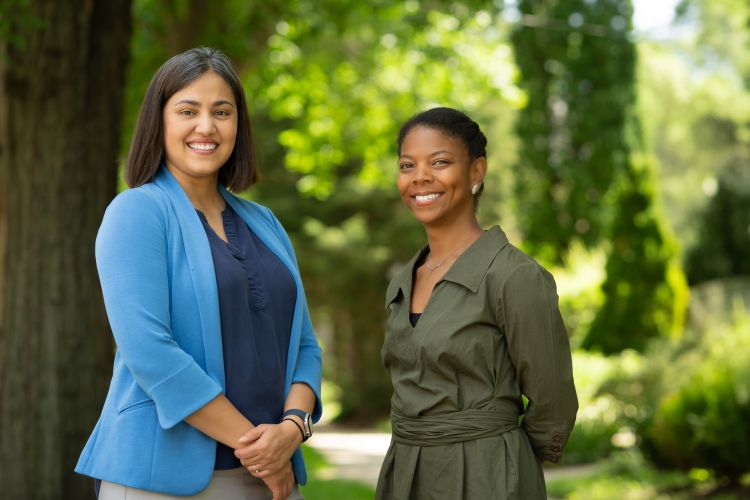Dr. Priyanka Pophali builds collaborations in cancer survivorship research
A Q&A about her new role at the Carbone Cancer Center

Priyanka Pophali, MBBS, wants colleagues to know that cancer survivors—people who have been diagnosed with cancer, and who live with or beyond it—often face longer-term health issues beyond the reach of oncology practices.
An assistant professor in the division of Hematology, Oncology and Palliative Care, Dr. Pophali became the director of the survivorship research program at the University of Wisconsin Carbone Cancer Center in September 2024.
Now, she’s seeking primary and specialty care partners to collaborate on research that can advance cancer survivorship care for patients in Wisconsin and beyond.
Learn more about her work and why it matters in this video and Q&A.
How did you get into this role?
My own research in hematologic malignancies has focused on patient-reported outcomes, quality of life for patients with lymphoma and the benefits of survivorship care plans for stem cell transplant patients.
About a year ago, Kim Dittus, MD, professor, Hematology, Oncology and Palliative Care, was hired to lead clinical supportive care services for UW Health.
Together, we thought it was a good time to expand survivorship research and integrate it into the developing clinical program.
Our hope is to go beyond disease-specific survivorship research and cultivate idea sharing across the cancer center.
Patients who live with and beyond their cancers are still affected by so many things that may not be discussed at their oncology visits.
Dr. Pophali
Why is survivorship research so important?
In oncology, we've had an upsurge of novel treatments, but we don't quite know how these therapies will affect our patients in the long run.
And when we think about survivorship, we're talking about more than active treatment and its side effects. We’re talking about the lives patients lead after they're diagnosed with cancer and after they’re discharged from oncology care.
Survivorship research is important because patients who live with and beyond their cancers are still affected by so many things that may not be discussed at their oncology visits.
What type of collaboration is needed?
We need to make sure primary and specialty care physicians can get updated on a patient’s cancer history and treatment, that they can refer to physical therapy or nutrition, or get the patient support for things like smoking cessation or alcohol dependency.
Multidisciplinary efforts really change how a patient lives after a cancer diagnosis. That’s why we need to build collaborations among all clinicians who see cancer patients and cancer-related long-term complications.
Are certain complications more prevalent in cancer survivors?
Cancer treatments have shifted from cytotoxic chemotherapy—which has known long-term risks, such as cardiovascular disease or development of secondary leukemia—to immunotherapy, which could cause rheumatologic, immunologic or endocrine problems in the long run. We're still learning about that because it's relatively new. There are other complications we don't fully understand yet.
The needs of cancer survivors vary, but psychological support is a big area, as is support for lifestyle changes to address metabolic syndrome, obesity, and the risk of cardiovascular disease.
My big-picture goal is to find ways to better communicate between oncology and primary care.
Dr. Pophali
What do you hope to accomplish through the survivorship research program?
So far we have worked on creating a roster of clinicians within the cancer center who are interested in survivorship research. We have champions in oncology, but need to find people outside oncology, too.
In the future, we hope to integrate patient-reported outcomes in the electronic health record, and create a supportive oncology order set to more easily screen and refer patients who are in active treatment or survivorship.
My big-picture goal is to find ways to better communicate between oncology and primary care. We can build on existing work in breast cancer survivorship, while keeping it simple and applicable across disease types.
We haven’t figured out how to do that yet, so that’s a research question!
To learn more, visit the cancer survivorship research program web page or contact Dr. Pophali.